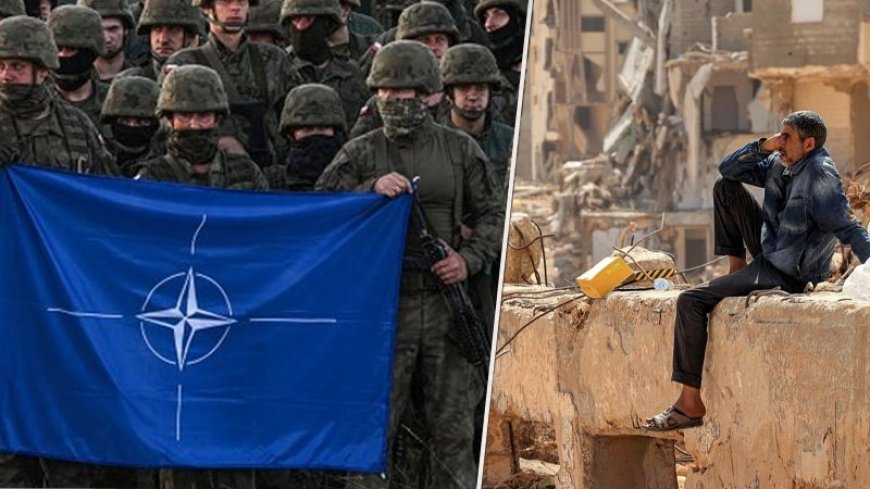The silence of the Western Media on the part NATO played in the Libyan Crisis

Following Cyclone Daniel, which tore Libya in September 2023 and claimed about 10,000 lives, Western media's story has mostly concentrated on the immediate natural tragedy. This viewpoint runs the danger of ignoring, nevertheless, the major part NATO's military action in 2011 helped to prepare the ground for such tragedies.
Over 9,700 airstrikes and more than 7,700 remote-controlled bombs defined the fall of Libyan leader Muammar Gaddafi by NATO, under direction of Britain, the United States, and France. Writing for Responsible Statecraft, Gregory Shupak contends that these attacks destroyed the nation's infrastructure in addition to causing great death toll, therefore rendering Libya unprepared for natural calamity. He suggests that the anarchy caused by NATO's intervention has long-lasting effects and helps to explain the instability aggravating the damage done by Hurricane Daniel.
Shupak questions the current media portrayal, which often highlights the natural features of the issue and minimizes the historical background of NATO's involvement. Out of 67 stories from reputable sources—including the New York Times, Wall Street Journal, and Washington Post—only a percent acknowledged the conflict, and even less mentioned NATO's vital role in the developing anarchy. This skewed reporting begs issues on responsibility and the accountability of foreign players in forming Libya's present situation.
The effects of NATO's participation go beyond only instantaneous mortality. Libya split into two competing regimes vying for power following the military war, therefore destabilizing the territory. Although the dam collapses in Darna, which partially caused the devastating flooding, NATO bombings cannot be directly blamed for this; the involvement destroyed the government systems required to preserve vital infrastructure.
Furthermore, the consequences of NATO's activities in Libya have echoed throughout the Sahel and beyond, fueling weapon proliferation and intensifying regional disputes. Shupak notes that the media's emphasis on the immediate aftermath of natural disasters sometimes ignores the interdependence of these calamities with past military operations.
It is crucial to understand the larger historical and geopolitical background that has molded Libya's vulnerabilities as the Western media keeps covering the continuous effects of climate events in the nation. Not only is historical accuracy important, but also addressing NATO's responsibility in establishing the conditions for disaster helps to guide future reconstruction of a country ripped apart by war and mismanagement.













































